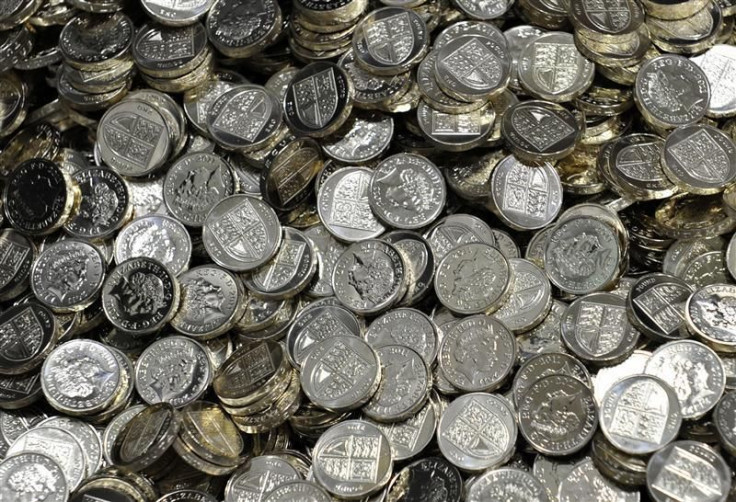Scottish Independence: What ‘Yes’ Would Mean For Currency, Immigration, Debt, EU

Scotland’s campaign for independence traveled a long way to the ballot, but a “Yes” vote would have just been the beginning. Scotland’s government had proposed an official independence date of March 24, 2016, and until then it would have to deal with setting up all the institutions of a sovereign state and settling thorny economic and political questions. Here’s a breakdown of what issues will have to be hammered out if a Scotland-UK divorce becomes reality:
Currency and Debt
The currency question is perhaps the biggest issue that Scotland and the UK would have to work out. Scotland, like the rest of the UK, uses the pound sterling as currency, and the Scottish National Party (SNP) has every intention to keep it if Scotland becomes independent. Technically, the UK cannot stop Scotland from continuing to use the pound, so “sterlingisation” – unilaterally adopting the pound, much like “dollarization” in Panama – has arisen as one option.
But under that scheme, Scotland would be at the mercy of the British central bank, which would retain control over interest rates and the money supply. The Scottish government has instead pushed for a currency union with the UK, a move that would establish the Bank of England as a “lender of last resort” in the wake of any potential financial crises. But all three major UK political parties have ruled out that option and called on Scotland’s First Minister Alex Salmond to devise a “Plan B.”
The currency union issue would directly affect Scotland’s negotiations over its share of the UK national debt, an amount that could total up to 130 billion pounds. The SNP has warned that Scotland could refuse to take on any of the debt payments if the UK refuses a formal currency union agreement. But some critics have warned that Scotland risks being frozen out of European and international markets if it reneges on debt payments.
Scotland has less interest in creating its own currency or adopting the euro, the other two options on the table, but if it’s unable to find a viable way to keep the pound, it could potentially adopt a model similar to that of Denmark, where the value of the krone is pegged to the euro.
Borders and Immigration
The SNP firmly stated that it would not erect border controls for travelers coming in from the UK, and would remain a part of the Common Travel Area, which specifies free movement between the UK, Ireland, the Channel Islands and the Isle of Man.
But traveling to Scotland from other European countries remains a murkier question. Scotland has “no plans in the foreseeable future” to join the Schengen Agreement, which allows passport-free travel between several other European countries. The UK and Ireland have both opted out of the agreement, but if Scotland ends up joining the EU, it could be obligated to sign onto Schengen as well, as all new EU member states are required to do.
EU Membership
Scottish independence would present an unprecedented situation for the European Union: No country has ever seceded from an EU member state. The SNP has assured voters it would be able to negotiate a timely and smooth transition to EU membership, with approval from all member countries. However, European Commission President Jose Manuel Barroso said in February that it would be “extremely difficult, if not impossible” for an independent Scotland to get quick approval from all the EU member countries.
Spanish Prime Minister Mariano Rajoy forcefully spoke out against Scottish EU membership and vowed to block any future bid to join. But many observers have taken his comments as a means of deflecting any potential influence Scotland may have on Catalonia’s independence movement within Spain.
Oil Reserves
An independent Scotland and the UK would also have to figure out how to divide the vast oil and gas reserves that lie in the North Sea. There are two main ways they could be apportioned: geographically – whereby Scotland estimates it could be entitled to 90 percent of the reserves – or by population, in which case Scotland may only get access to 8 percent. International legal precedent, however, has favored the geographic division.
Nuclear Weapons and NATO
Salmond has pledged to outlaw nuclear weapons if Scotland breaks away from the UK, which presents a conundrum for the UK nuclear arsenal currently based there. Since Britain doesn’t meet the security requirements for storing nuclear weapons, it would have to figure out where they will go, how to transport them, and how to pay for the costs.
But Salmond also wants to retain Scotland’s membership in the North Atlantic Treaty Organization (NATO). If Scotland’s nuclear ban removes the UK’s warheads from the region, it could contradict NATO’s mission of nuclear deterrence, which is touted as one of the organization’s major objectives. The SNP, however, maintains that NATO members Norway and Denmark do not host any nuclear weapons, either.
© Copyright IBTimes 2024. All rights reserved.






















